
- Fisherman Andre Ferguson check his ropes as he heads out from Pile Bay, Barbados for a day of fishing.
- |
Barbados’ Fisheries Go Digital
Alison Buckholtz. Multimedia by Armando Gallardo and Julia Schmalz.
When fisherman Andre Ferguson wakes in Barbados’ pre-dawn darkness, he methodically gathers his gear: a speargun; a rubber belt onto which to hook fish; and a snorkeling mask that allows him to spot his catch underwater. Ferguson’s modest preparations mirror those of generations past – or so it seems. But as he steers his boat out of Pile Bay, Ferguson pulls out his mobile phone. He checks apps that track weather, wind direction, and water temperature. Then, with his handheld GPS device, he seeks out a spot at the right depth to drop his 4-by-4-foot metal trap. (For red snapper, for example, the ideal depth is 450 to 500 feet.)
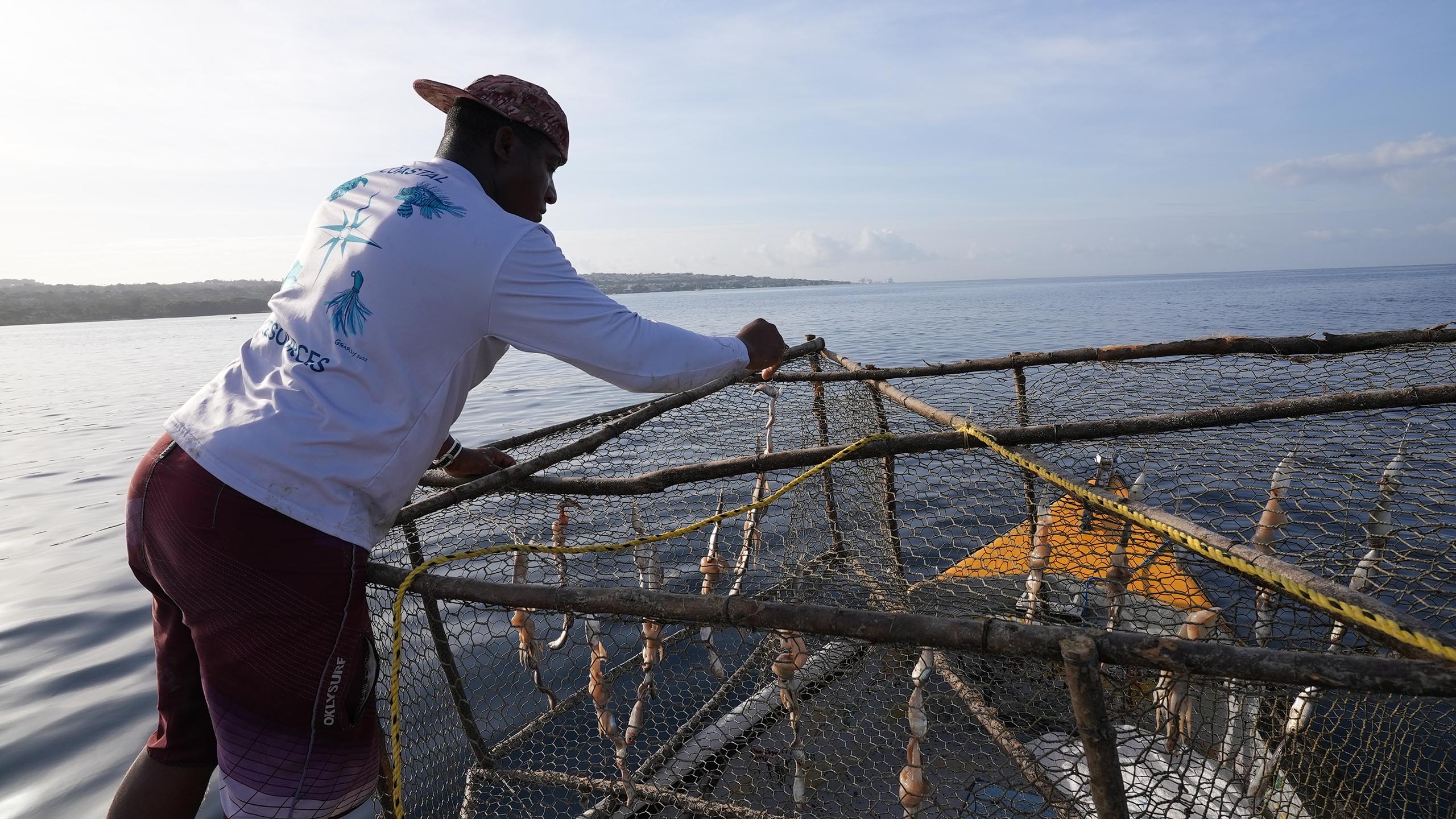
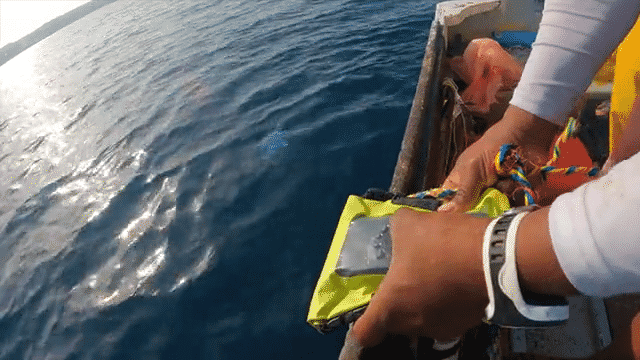
Before GPS allowed him to mark the trap’s coordinates, he would leave a buoy floating to mark the spot so he could return to it later and collect the trap. But use of the buoy, which effectively signals that there is a trap below, left him vulnerable to thieves.
“Pirates are real,” he laughs. “There are dishonest people who won’t think twice about taking someone else’s trap full of fish, rope, and buoy, too. Having the GPS removes that risk, because I can set the trap with the buoy underwater and come back to get my trap using the coordinates, but no one else knows it’s there.” Since he’s paid according to the overall weight of his catch, the GPS has made a significant difference in his income in the two years since he purchased it, he says.
The impact of warmer temperatures on the fishing industry is not just a problem for Barbados or the Caribbean region. Worldwide, warmer temperatures will influence the abundance, migratory patterns and The impact of warmer temperatures on the fishing industry is not just a problem for Barbados or the Caribbean region. Worldwide, warmer temperatures will influence the abundance, migratory patterns and mortality rates of wild fish stocks and determine what species can be farmed in certain regions, according to the OECD. Its report concluded that these climatic effects on fish will have social and economic consequences for people dependent on fisheries and aquaculture – from workers to coastal communities to consumers of fish. The potential impact on food security is profound because 3.2 billion people worldwide rely on wild-caught and farmed seafood as a primary source of protein, according to the FAO.
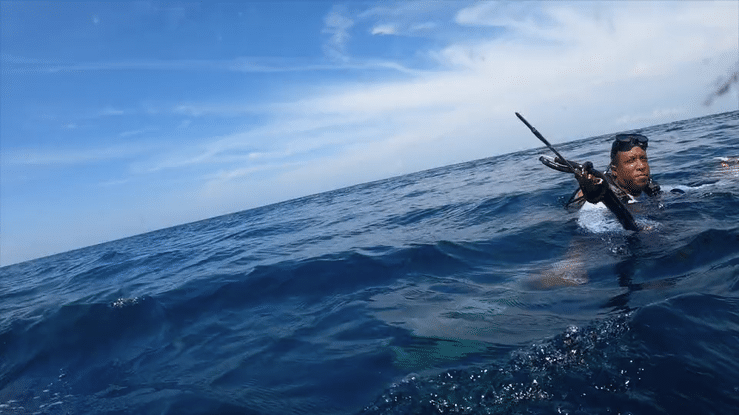
Digital technologies—such as GPS, mobile phone apps, solar-powered fishing vessel tracking devices, and digital tablets that allow fisheries to use new data collection methods—are changing Barbados’ fishing industry. The technologies are part of a plan to strengthen and protect the future of fishing, according to Shelly-Ann Cox, Barbados’ Chief Fisheries Officer.
In early November, the fisheries department rolled out a new system that uses digital tablets to record information about each catch as fisherfolk return to shore. A cadre of local “digital data collectors” are being trained to ask pertinent questions about ocean, climate, and fishing conditions and record responses. It’s all part of the national DigiFish initiative, a collaborative program between government, civil society, and the private sector that is introducing technology to support the use of digital innovations in a systematic way.
“Many fisherfolk are already using GPS equipment and satellite imagery to help them find fish and monitor sea surface temperatures and heights,” Cox says. In addition, data from solar-powered tracking devices, vessel monitoring systems, and Smart Scales, with touch screens that display the weight, length, grade, and temperature of fish, can feed into a database that generates a tag for fish that are considered traceable and sustainable. This will help local fisherfolk access new export markets, such as those in the European Union, that require those certifications.
That’s important because climate change threatens fisherfolks’ livelihoods, according to Cox. Though fishing is one of Barbados’ oldest industries—for centuries, it has ensured that local people had enough to eat and to trade—warming waters, rising sea levels, and an unprecedented influx of sargassum is having a negative impact. This creates profound hazards to the national economy, local culture, and individual livelihoods like Ferguson’s.
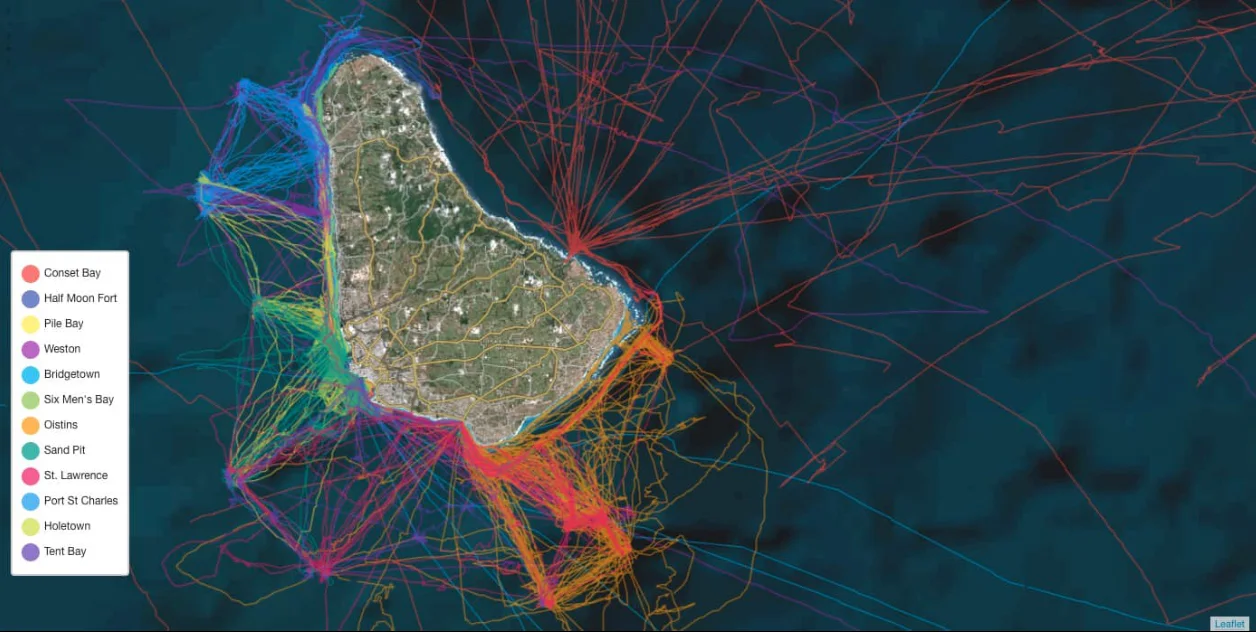
Catching the “digital wave”
To help fisherfolk in Barbados strengthen their digital literacy so they can take advantage of new technologies and safeguard their livelihoods, Barbados’ Department of Fisheries works closely with community organizations. It has partnered with the Barbados National Union of Fisherfolk Organizations (BARNUFO), part of the Caribbean Network of Fisherfolk Organizations, to develop a training for individual fishermen and women.
BARNUFO supports fisheries’ shift to digital. Its President, Vernel Nicholls, has said that the vessel tracking devices bring a wide variety of benefits, including helping fishers to know where to fish efficiently and effectively, thereby saving fuel; targeting areas where maximum profits could be gained; promoting safety of life at sea; deterring vessel theft; and helping fisherfolk comply with fishing rules and regulations.
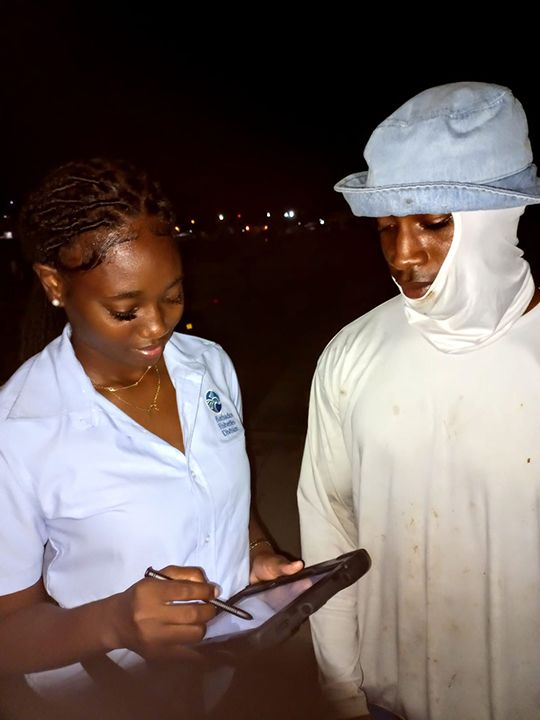
Digital tools can also support fisheries’ management efforts by monitoring and analyzing fleet behavior; mapping protected mammals to determine if fishing occurs in the same space, and providing data to support marine spatial planning. Additional benefits include helping to reduce the cost of search and rescue operations, and combatting illegal unreported and unregulated fishing, Nicholls says.
Most fisherfolk have been open to integrating digital skills because it may have the potential to increase their income, says Katrina Chapman, manager of the Pile Bay Fish Landing facility. As a third-generation fisherwoman, Chapman believes that anything that improves fisherfolks’ quality of life is worth trying.
For Ferguson, whose father first took him fishing when he was just a baby, taking advantage of new tools is what any business requires, and the fishing business is no different. “You’ve got to keep up,” he laughs. “That’s what I’m doing.”
RELATED NEWS


